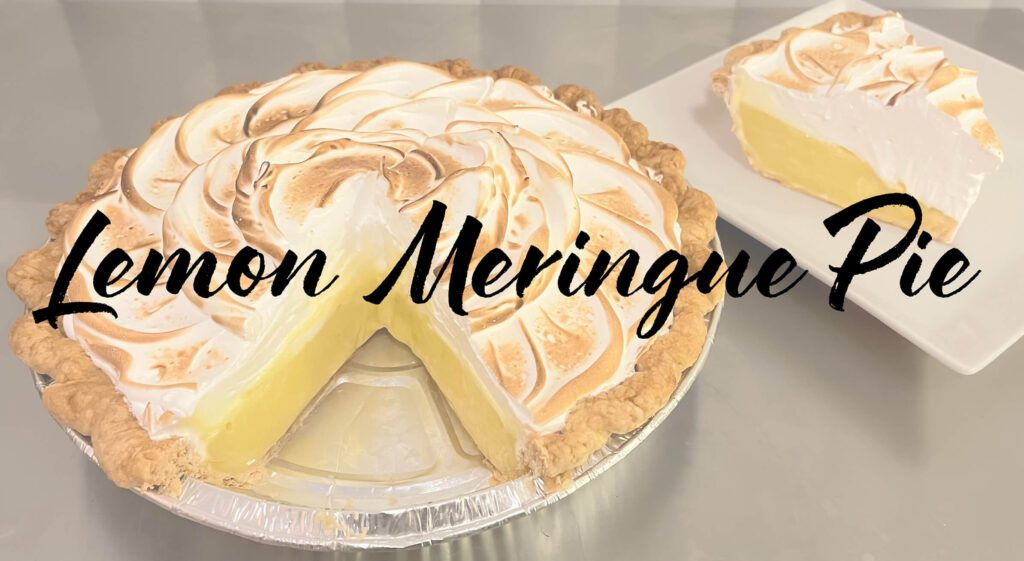
Lemon meringue pie is a classic American pie. In fact, it’s so beloved that it has practically pushed every other citrus meringue pie off the table. Ever heard of an orange meringue pie? Grapefruit meringue pie? Lime meringue pie? They exist, but none of them have ever rivaled the popularity of lemon meringue pie. Like many pies I’ll feature on this blog, lemon meringue pie is, in fact, more American than apple pie. Today, I’m sharing my go-to lemon meringue pie recipe so you can make this timeless dessert at home.
Table of Contents
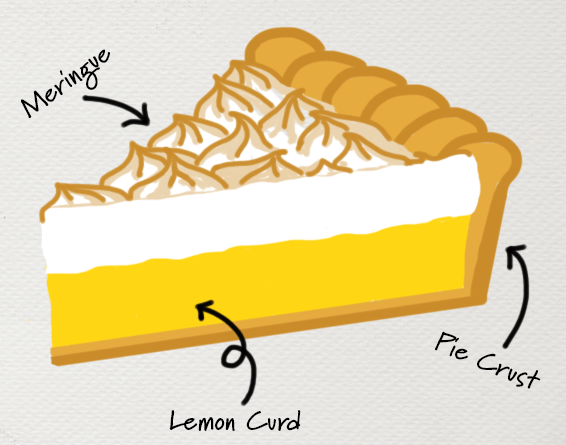
What is lemon meringue pie?
Lemon meringue pie is one of those desserts that everyone seems to know. Unlike regional specialties such as possum pie (yes, that’s a real pie from Arkansas – and no, it doesn’t contain actual possums), lemon meringue pie is universal. Wherever you go in the US, it’s instantly recognizable.
Part of what makes lemon meringue pie so iconic is its consistency. While other pies can vary widely, like “sunshine pie” which can be a custard, ice cream, or even Jell-O pie depending on the recipe, lemon meringue pie is always the same: a buttery pastry crust filled with a tart lemon curd, and topped with fluffy meringue.
Over the years, it has gone by different names. In many 19th century cookbooks, pies that we’d call “lemon meringue pie” are listed as “lemon cream pie”.
History of lemon meringue pie
The history of lemon meringue pie is surprisingly well-documented, thanks to a few talented women in culinary history. Lemon curd itself dates back to the Quakers in 18th-century England, who later brought the recipe to America. But in Victorian times, lemon curd was considered an expensive luxury! It requires several egg yolks and leaves the egg whites unused, a costly waste for the time.
Enter Mrs. Elizabeth Goodfellow of Philadelphia, widely credited as the inventor of lemon meringue pie. Mrs. Goodfellow, who was running America’s first cooking school, found a solution to this problem: she whipped the leftover egg whites into a meringue and used it to top her lemon pies. While she wasn’t the first to put meringue on a dessert, she is thought to be the first person to popularize topping pies with meringue.
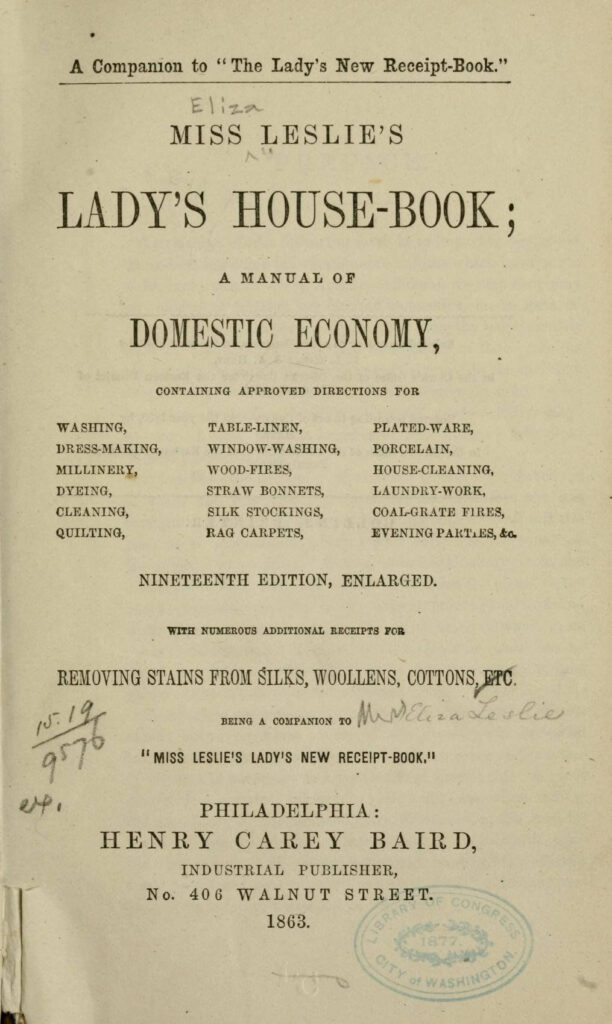
However, while Mrs. Goodfellow can be credited with the creation of lemon meringue pie, she was not the one that made the dessert famous. That credit goes to one of her students, Eliza Leslie. In 1847, Leslie published the first known lemon meringue pie recipe (then called “lemon cream pie”) in her cookbook The Lady’s Receipt-Book: A Useful Companion for Large or Small Families. After that, lemon meringue pie (or rather lemon cream pie at the time) began appearing in cookbooks nationwide, cementing its place as an American classic.
There is some debate among food historians about who truly invented the lemon meringue pie. Some sources point to Emile Campbell-Brown of England, while others point to a Victorian dessert called “chester pudding,” which was made of lemon curd in a shortbread crust topped with meringue. But the evidence just doesn’t line up: Campbell-Brown’s supposed creation dates back to 1875, decades after Eliza Leslie published her cookbook in 1847. And the first recipe for chester pudding that I can find is in The English cookery book, receipts collected by a committee of ladies, and ed. By J.H. Walsh published in 1859 – also after 1847.
With that timeline in mind, Elizabeth Goodfellow of Philadelphia remains the most well-documented and likely creator of the lemon meringue pie we know and love today. For anyone interested in a deeper dive of Mrs. Goodfellow and America’s first cooking school, there’s a wonderfully researched book written by Becky Diamond titled Mrs. Goodfellow: The Story of America’s First Cooking School.
How to Make Lemon Meringue Pie: Step-by-Step Instructions
Crust:
You’ll need a fully baked pie shell for this recipe. If you’d like a detailed walkthrough, check out my guide to making perfect pie crust.
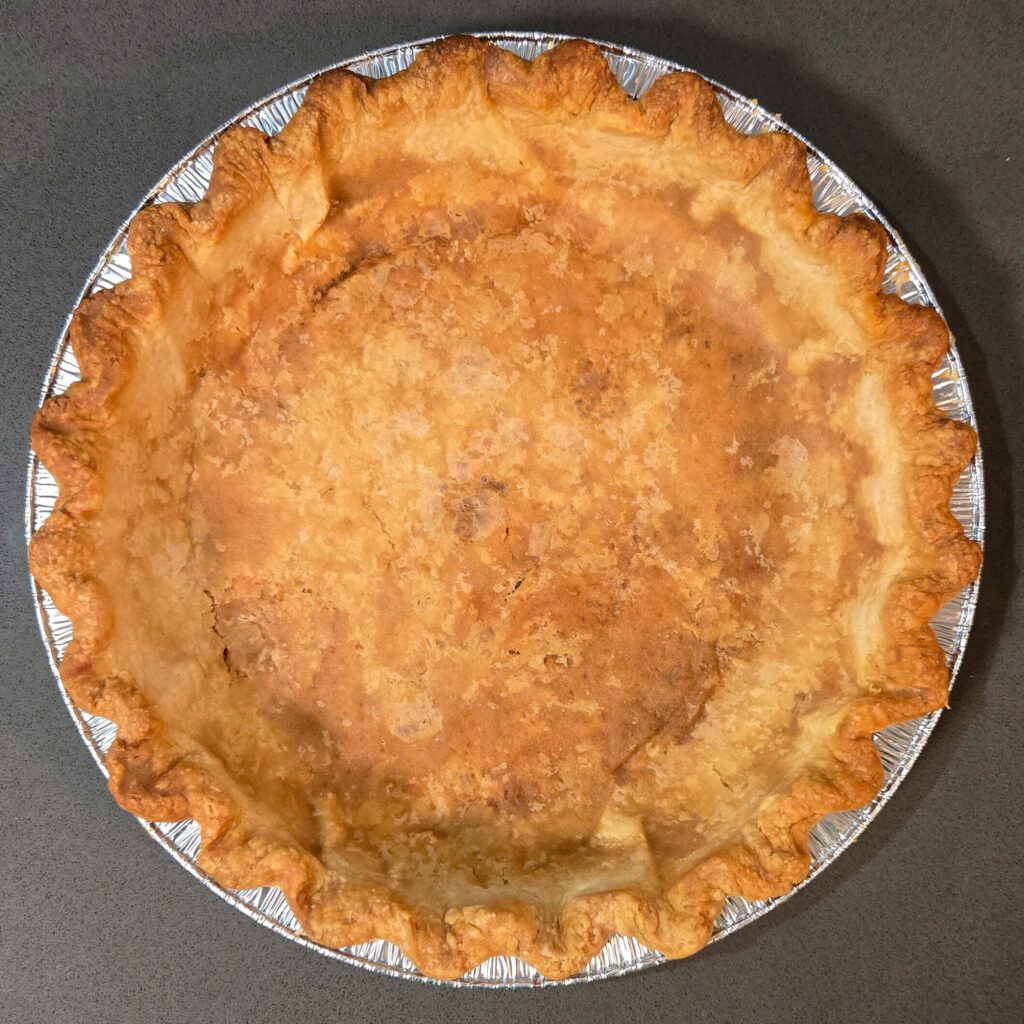
Lemon Curd Recipe:
This lemon meringue pie filling is a stovetop lemon curd that requires time to cool (usually about 3 hours) before topping with meringue.
Ingredients
- 1c lemon juice (236mL)
- 1c water (236mL)
- 1¼c sugar (250g)
- ¼t salt
- 1T lemon zest (6g)
- 6 egg yolks
- ⅓c cornstarch (40g)
- 3.5T butter cut into cubes (50g)
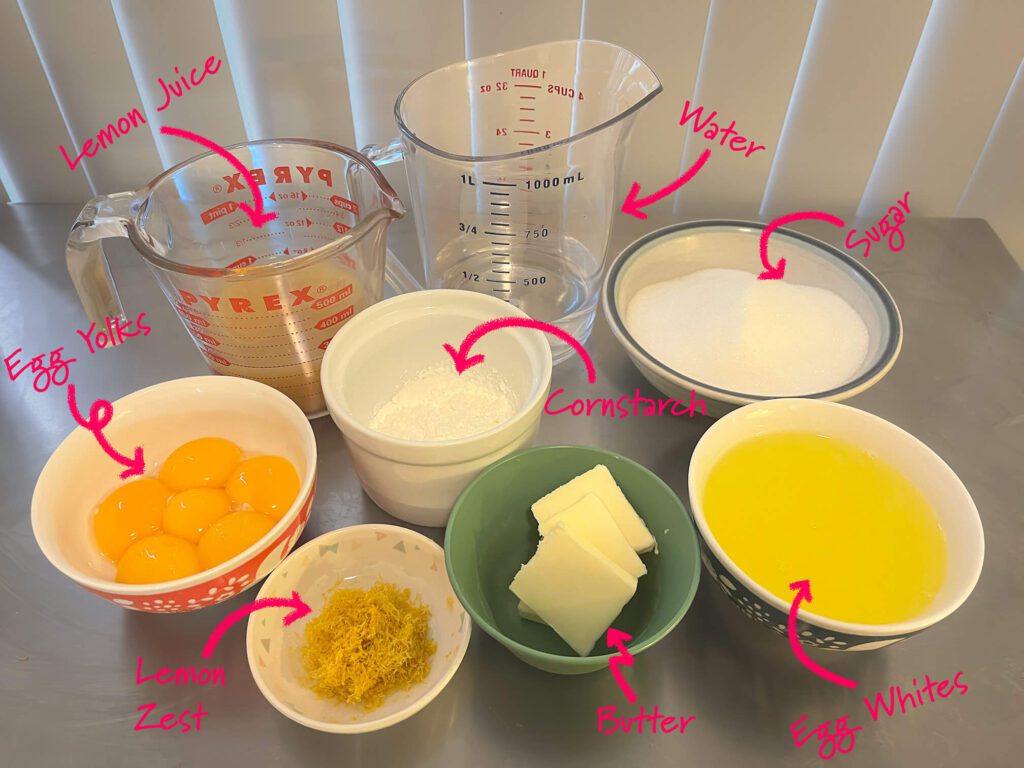
Tip: Before you begin, I recommend doing a mise en place, gathering and measuring all your ingredients before you begin cooking. This makes the process smoother and ensures you won’t scramble (pun intended) when it’s time for time-sensitive steps.
1. In a heavy-bottomed saucepan (1.5qt is ideal), combine the lemon juice, water, sugar, salt, and lemon zest. Place over low heat.
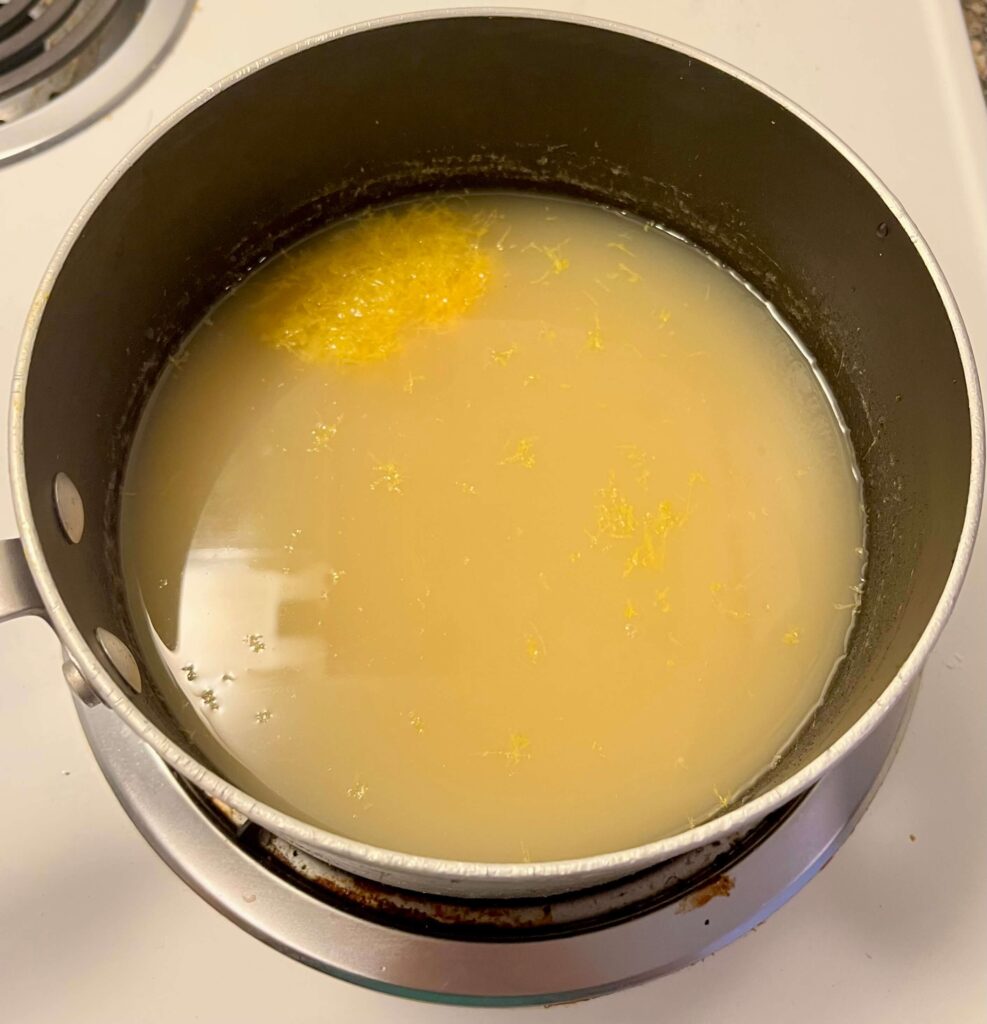
2. While the mixture warms, whisk together your egg yolks and cornstarch in a medium bowl. Make sure the bowl is large enough to hold the yolks, cornstarch, and eventually the hot liquid from step 1.
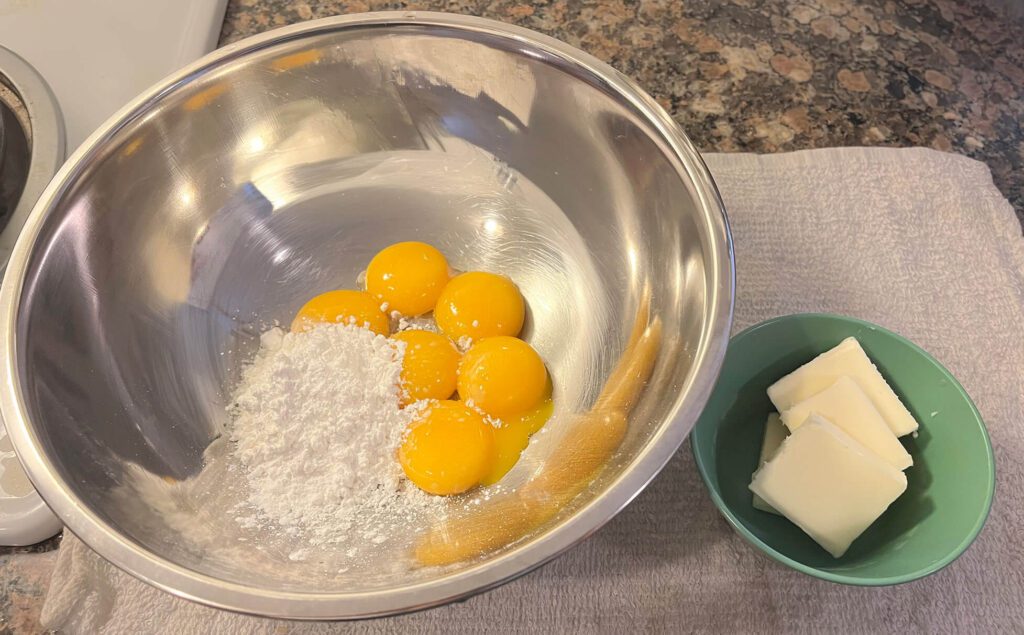
3. Increase the heat on the saucepan to medium and bring the mixture to a boil.
4. Once boiling, temper the yolks: slowly stream the hot liquid into the yolk mixture while whisking vigorously. (This prevents scrambled eggs in your lemon curd!)
Tip: Place a damp kitchen towel under your bowl to prevent it from sliding or spinning as you whisk.
5. Return the tempered mixture to the saucepan over medium-low heat. Whisk constantly, scraping the bottom of the pan to prevent scorching. The mixture will begin to thicken
6. As the mixture thickens, as soon as it begins to boil, whisk vigorously for 60 seconds, then remove from heat.
7. Whisk in the butter until fully melted and smooth.
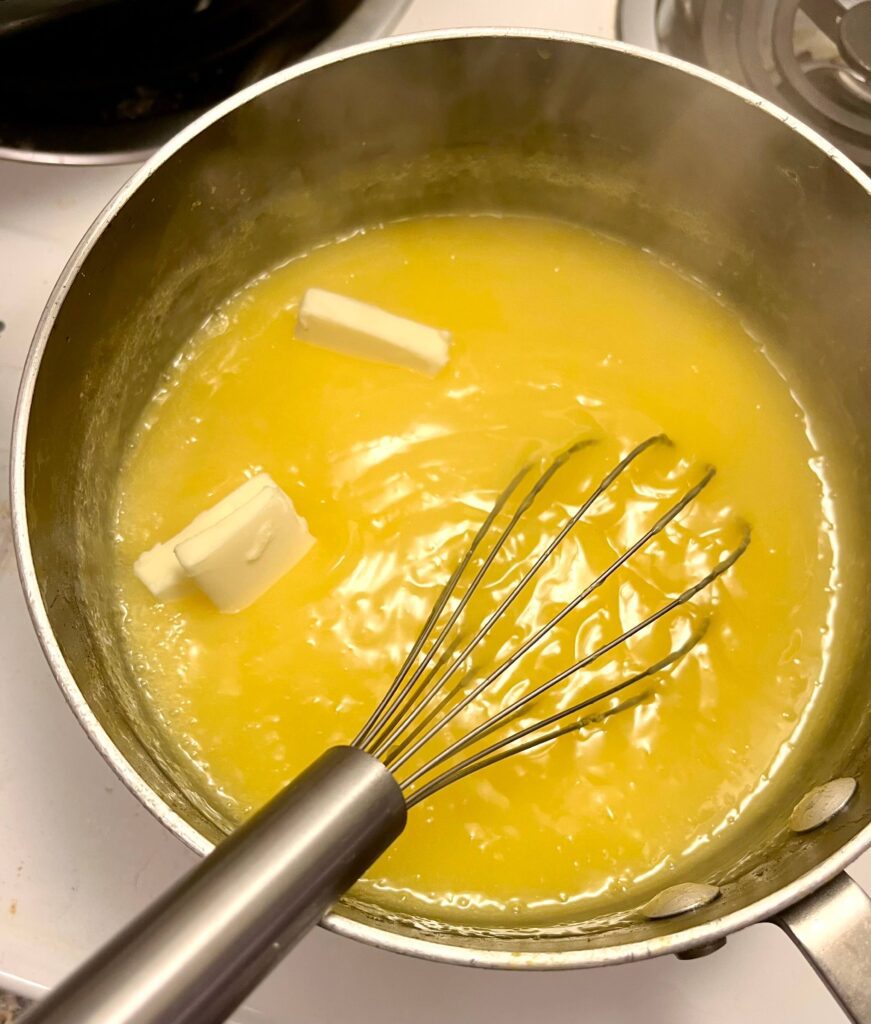
8. Strain the curd through a fine-mesh sieve into a clean bowl to remove any lumps and zest.
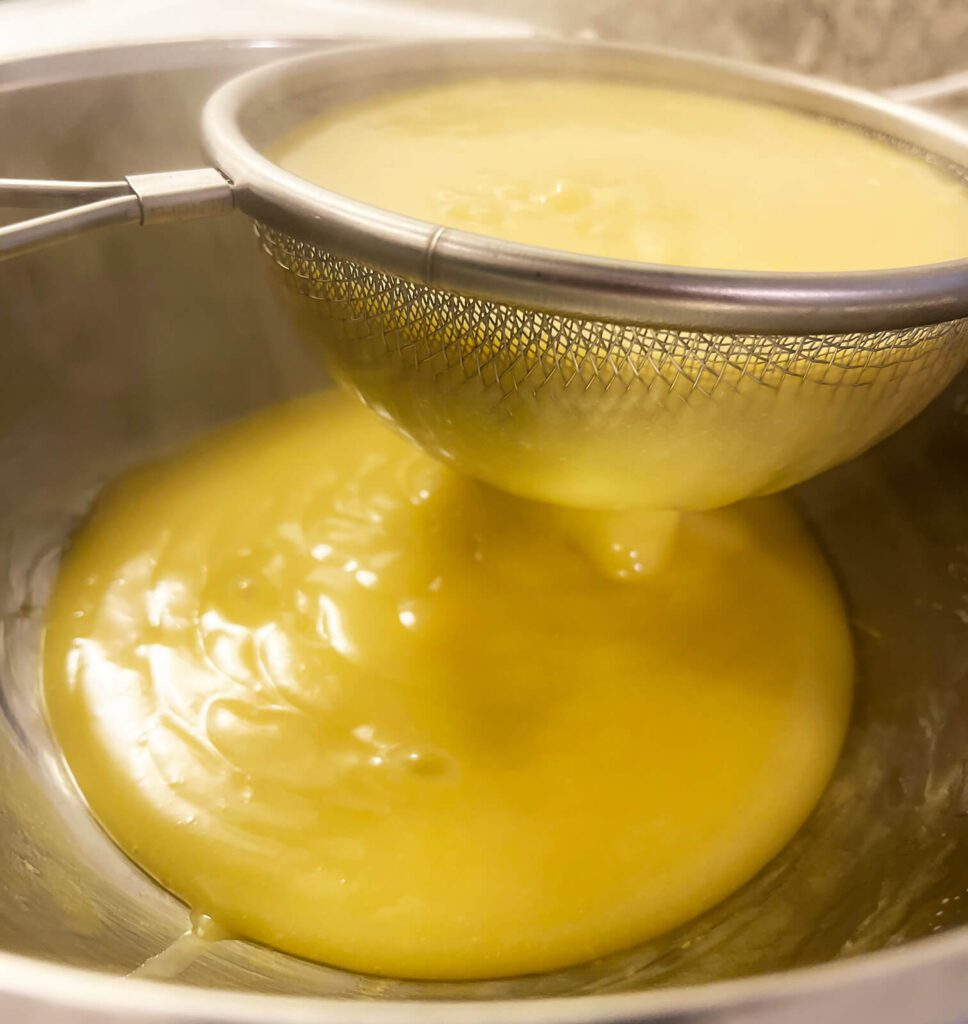
9. Pour into the baked pie shell. For a smooth surface, gently jiggle the pie as you pour.
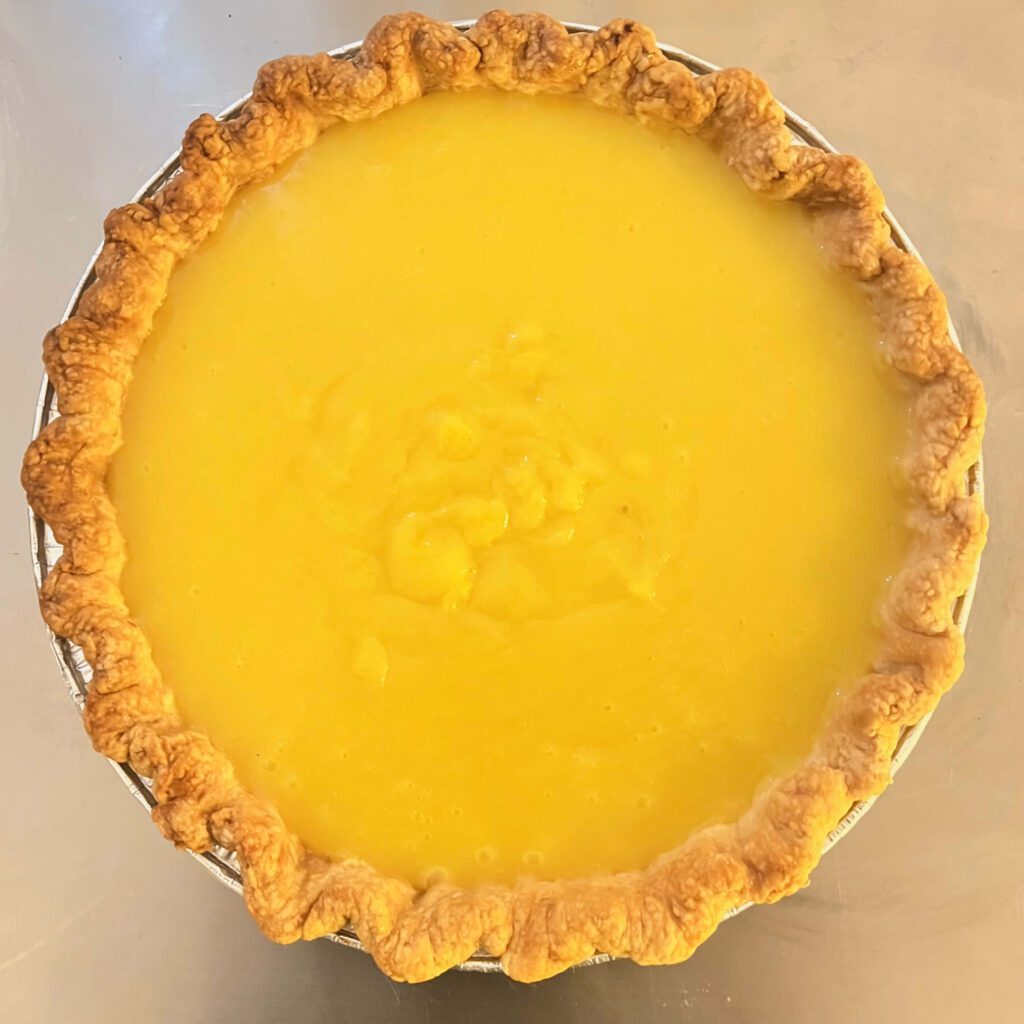
10. Chill for about 3 hours, until set.
Meringue Pie Topping Recipe:
No lemon meringue pie recipe is complete without its signature fluffy meringue top. You can use 3-4 of the egg whites left over from the filling. Three whites will cover the pie, while four will give you extra volume to decorate with. For a more in-depth look at the science and history behind meringue toppings for pies and troubleshooting tips, see my post entirely on meringue here.
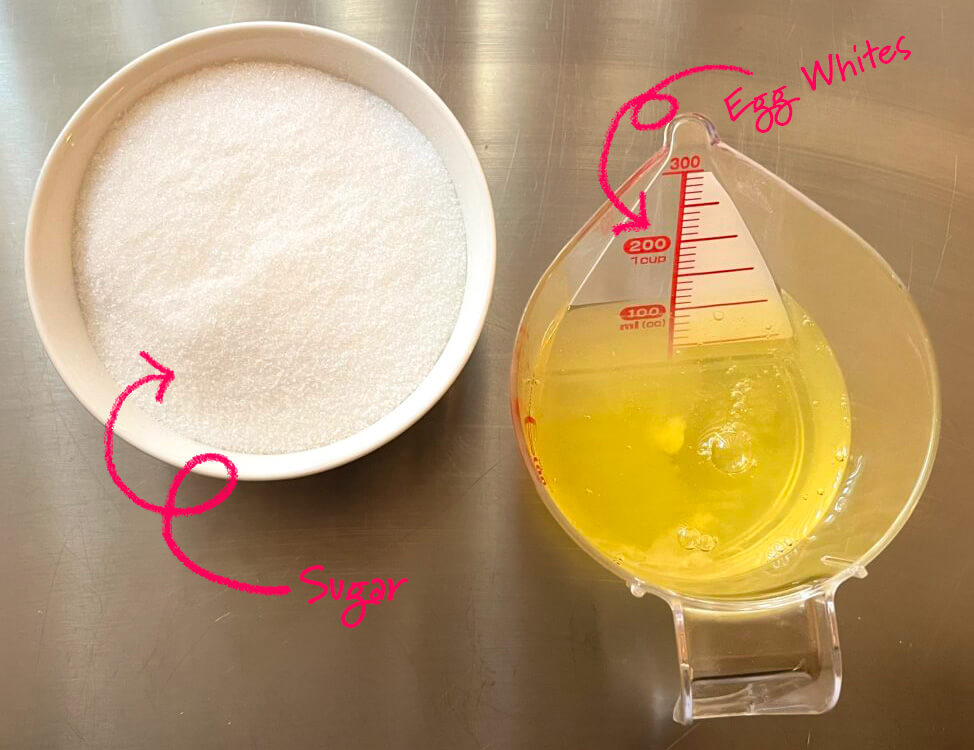
Ingredients
- 3-4 egg whites
- 3/4c granulated sugar
1. In a mixing bowl set over a double boiler, whisk together the egg whites and sugar.
2. Continue whisking slowly until a candy thermometer reads 160°F.
3. Immediately remove the bowl from heat, and whip on high speed until stiff peaks form.
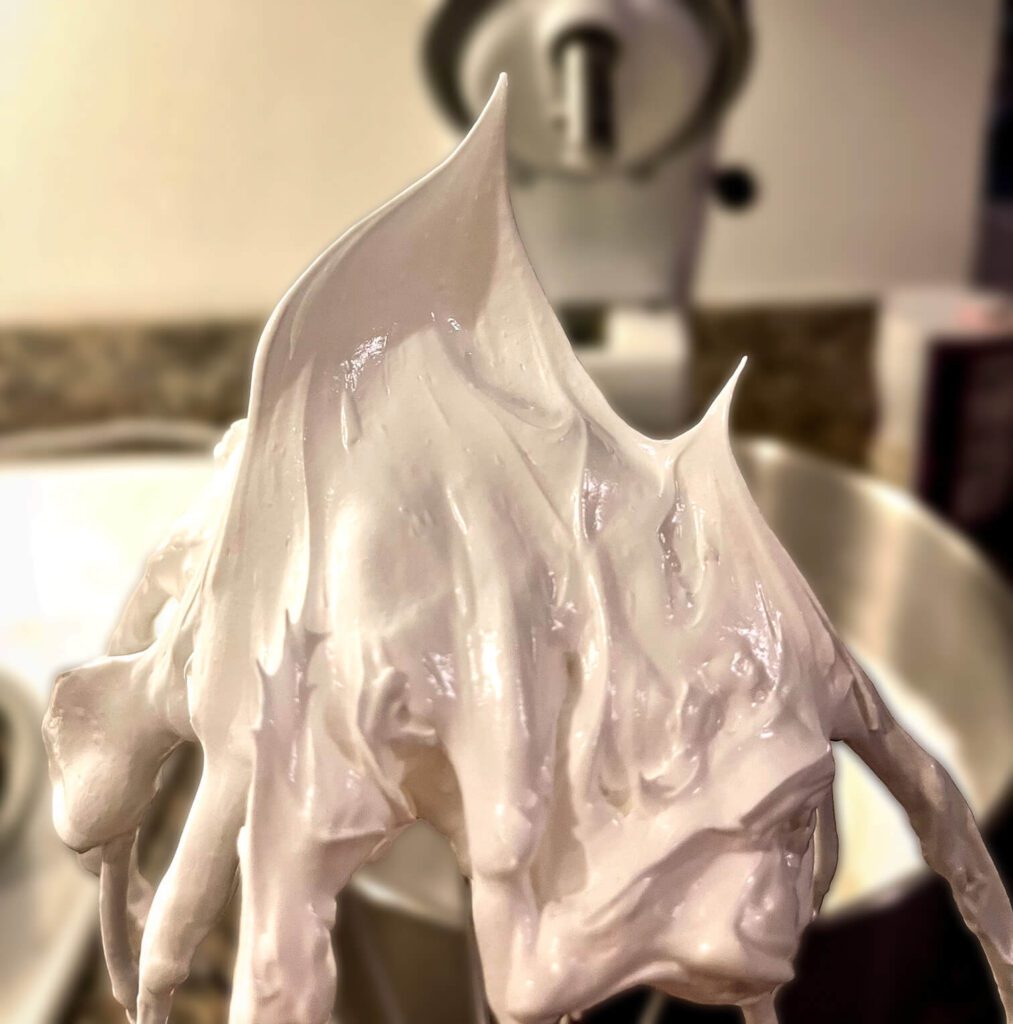
4. Spread the meringue evenly over the chilled lemon curd filling, making sure to seal the edges where the meringue meets the crust.
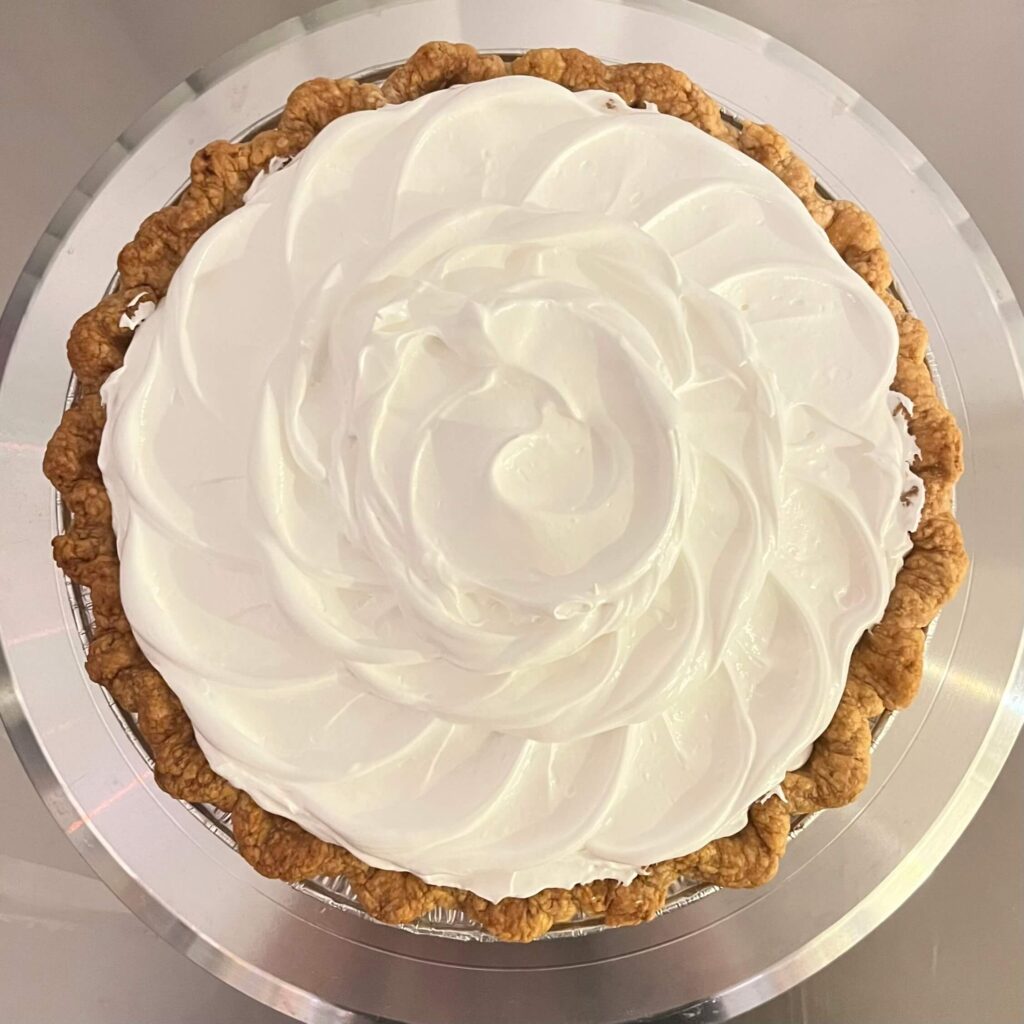
5. Toast the meringue:
a.
Torch Method (recommended): Use a kitchen torch to brown the peaks of the meringue quickly and evenly.
b.
Broiler Method: Place the pie under the broiler, watching carefully, until the meringue begins to turn a golden brown.
c.
Baking Method: Bake the pie at 350°F for 10–15 minutes, until the meringue begins to brown.
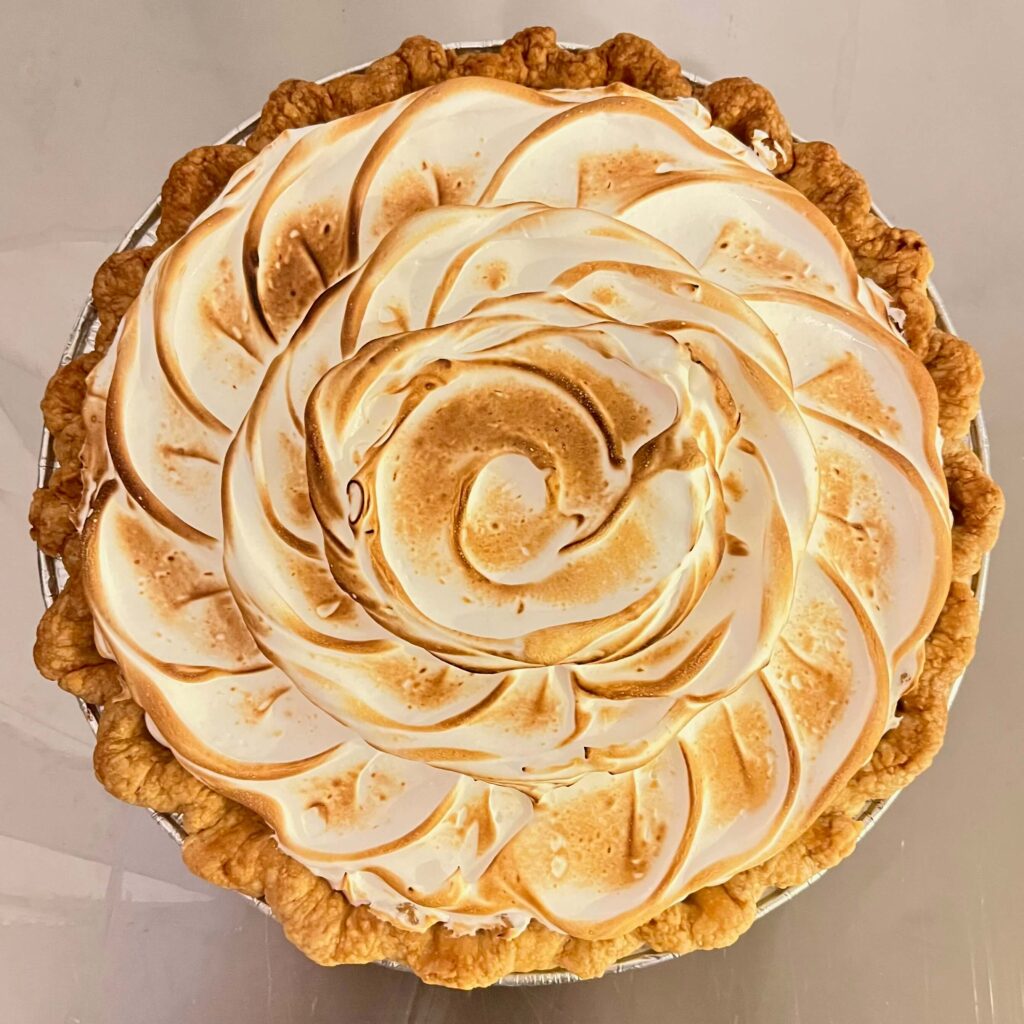
Important Recipe Notes:
Tempering the Eggs:
Tempering is the easiest and most foolproof way to prevent your lemon curd from curdling. Eggs like to be cooked gently. Think of scrambled eggs: cooked on high heat, they turn tough and dry; on low heat, they stay soft and creamy. The same principle applies here.
To temper your eggs, keep your egg yolks and cornstarch in a separate bowl while you bring the lemon juice, water, sugar, and zest mixture to a boil. Just as it begins bubbling, slowly stream the hot liquid into the yolks while whisking vigorously. If multitasking feels tricky, use a small measuring cup to add the hot liquid in tiny amounts, or have someone help you with pouring while you whisk. Once about one-third of the liquid is incorporated, the yolks will loosen and warm, allowing you to add the rest in more quickly without risk of scrambling.
Why You Should Use Lemon Zest:
The zest is where the essential oils of citrus live and gives citrus fruits their distinctive aromas. Juice adds tartness, but the zest adds in that “lemon” flavor that makes this lemon meringue pie recipe really shine. To get the full flavor from the zest, it needs to be heated, which is why I add the zest in early and strain it out at the end.
Food Safety and Meringue
When making meringue, it’s best to always bring your egg whites and sugar mixture to 145–160°F. This ensures that the egg whites are cooked to a food-safe temperature and that the sugar fully dissolves for a smooth, glossy finish.
Note: Undercooked or raw egg whites can be unsafe for older adults, young children, pregnant individuals, or anyone immunocompromised. Always use a thermometer to confirm the temperature of your egg yolks for a safe and reliable topping.
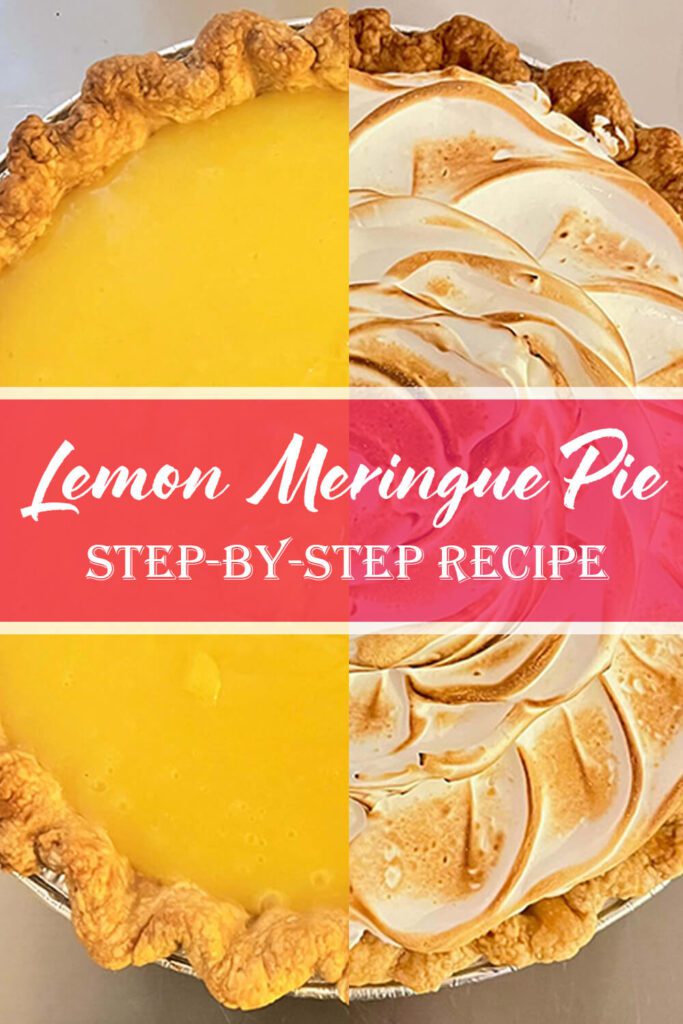
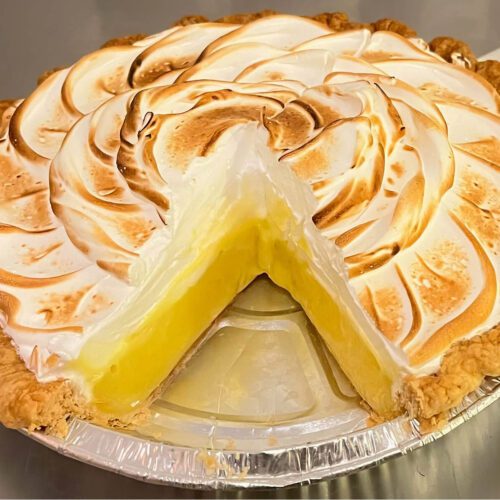
Classic Lemon Meringue Pie
Ingredients
Crust
Lemon Curd
- 1 cup Lemon Juice (236mL)
- 1 cup Water (236mL)
- 1.25 cup Granulated Sugar (250g)
- 1/4 tsp Salt
- 1 tbsp Lemon Zest (6g)
- 6 Egg Yolks
- 1/3 cup Cornstarch (40g)
- 3.5 tbsp Unsalted Butter (cubed) (50g)
Meringue Topping
- 3-4 Egg Whites
- ¾ cup Granulated Sugar (150g)
Instructions
Prepare Your Pie Crust
- Before beginning to make this pie, prepare a fully-baked pie shell. Instructions can be found here.
Make the Lemon Curd
- In a 1.5qt saucepan, combine the lemon juice, water, sugar, salt, and lemon zest.
- Whisk together egg yolks and cornstarch in a mixing bowl large enough to fit the liquid from step 1.
- Bring the lemon juice mixture to a boil over medium heat.
- As soon as your lemon juice mixture reaches a boil, slowly pour the mixture into the egg yolks while whisking vigorously.
- Once the yolks and liquid are fully incorporated, return the mixture to the saucepan on medium-low heat.
- Whisk slowly and continuously, scraping the bottom of the saucepan, until it comes to a boil.
- Once the mixture begins to bubble, whisk vigorously for 1 minute before removing from heat.
- Whisk the cubed butter into the lemon curd until it is fully melted and incorporated.
- Strain the lemon curd through a fine-mesh strainer into a mixing bowl to strain out any chunks.
- Pour the lemon curd filling into your fully baked pie crust and refrigerate until set. (~3 hours)

Make the meringue topping
- On a double boiler using a candy thermometer, whisk the egg whites and granulated sugar together until the mixture reaches 145-160℉.
- Transfer to a stand mixer and whip on high speed until stiff peaks form.
Assemble the lemon meringue pie
- Remove your pie from the refrigerator.
- Spread the meringue over the pie.

- Using a kitchen torch, brown the meringue until it is a golden brown. Alternatively, bake the pie at 350℉ or put the pie under a broiler until the meringue becomes a golden brown color.

- Serve and enjoy!


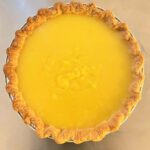
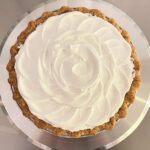
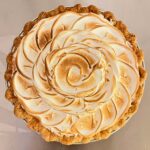




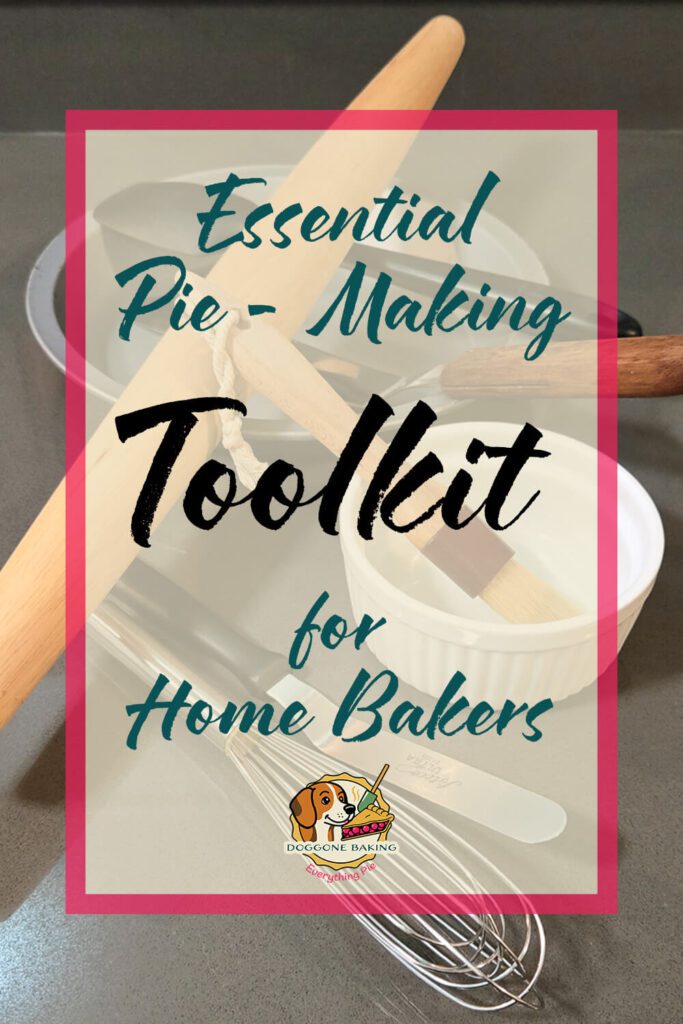
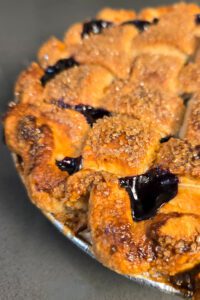
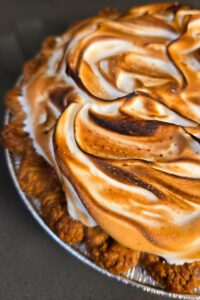
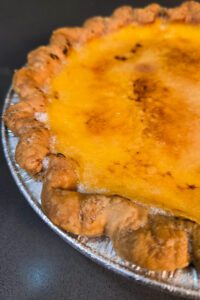
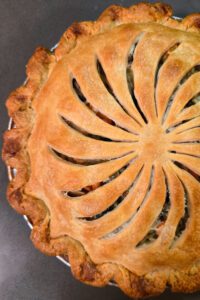



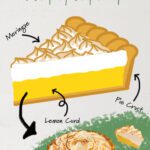
5 Comments
Loved the recipe, and the pictures and tips were very helpful!
One of my favorite desserts! And your recipe was SO delicious!!!
This lemon meringue pie was amazing! Just the right balance of sweet and tangy.
this lemon meringue pie is the best dessert!
Classic lemon meringue pie — tangy lemon filling with fluffy, golden meringue topping!